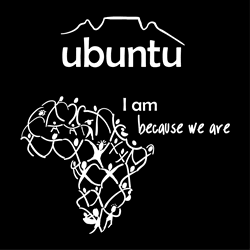Identity, Self-Determination and Then What?
My reflection on the second principle of the Nguzo Saba of Kwanzaa is Kujichagulia – Self-Determination
“To define ourselves, name ourselves, create for ourselves and speak for ourselves” is often commonly articulated as the definition of Kujichagulia. For many this principle has been all about identity and selecting names, memorizing phrases from different African cultures, and suggesting Pan-Africanism is the ideology we must take on. But all this still seems to miss part of the boat when it comes to Kujichagulia. In fact, many take this principle as a call to develop our individual identities rather than determining the direction of our community. For so many, the process of developing a strong Black identity or African centered identity is a highly personal one. You struggle with who you are, where your people are from, what you and your people have contributed, so inevitably it starts with one questioning their relation to the greater whole. Finding answers to these questions can lead to an identity, but not necessarily self-determination.

I recently had a conversation with a teacher who works at a local school, by her account, that features a very visibly Afrocentric staff member who talks often of African greatness, rattles off facts of the civilizations of Kemet, and floats regally through the halls. The teacher’s qualm with the staff member was plainly, “he treats the families at the school and the staff members like shit.” This narrative is one that I have heard all too often when it comes to the development of an identity. The idea that one can identify with the greatness of the past, but one fails to identify with the contemporary reality of Black people. It is great to be able to look at the pyramids and talk about African greatness, but can you look outside your window at the brothas on the corner too and see that greatness?
As a college professor, sometimes I find myself frustrated with students who are developing answers to who I am, but these identities are not tied to who and where we are as a people. Put another way, too often a romantic view of the past leads us to underestimate the value of our people in the present. Knowing where we are in the present, valuing it and challenging it, builds the path to self-determination. Kujichagulia demands that we take seriously our identities but that these identities must be linked to needs of the community and deeds that serve the community. It is this seeing beyond the “me” or the “i” to the “we” is what links identity and community. Identity without community is as useful as a word for which no one knows the meaning. Identity and community give us the core for determining the next directions our people should explore. No matter our allegiance to the past, we must be also be aligned with the present conditions of our people, if not, then self-determination will be centered on the “I” and not the “We.”
*The question of “and then what?” was really brought to me by the Boogiemonsters on this classic joint.
Filed under: Ancestors, Food for Thought, General, kwanzaa, memory



Pingback: Twitted by dumilewis()